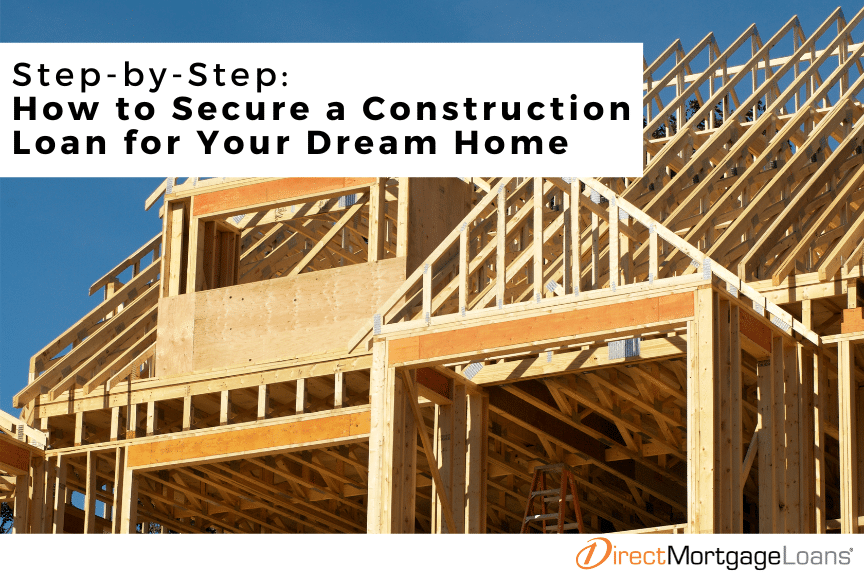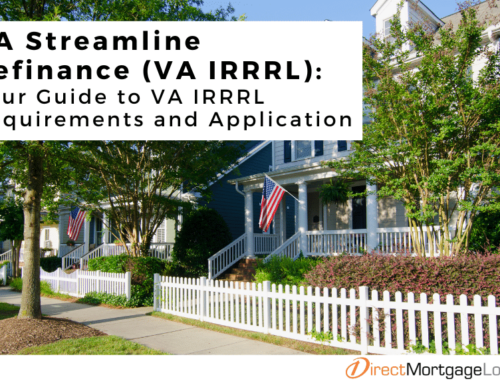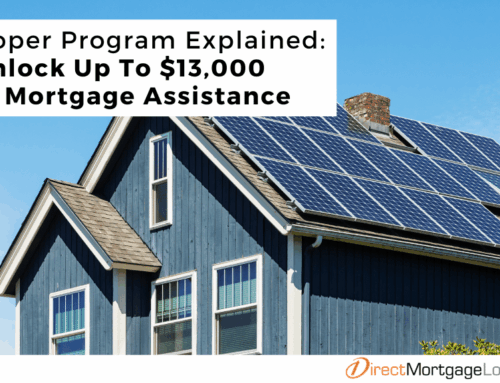Thinking about constructing a new home? Securing financing for a new construction project is quite different from getting a mortgage for an existing property. If you’re exploring this option, here’s what you should keep in mind.
Subscribe to our blog to receive notifications of posts that interest you!
What is a construction loan?
A construction loan is a type of funding which covers the costs of building a residential home, including the purchase of the land and construction of the structure. There are different types of construction loans. For instance, a standalone construction loan is a short-term loan, typically lasting for one year, which only covers the building phase. The borrower will then need to get a separate mortgage to pay off the home. On the other hand, a construction-to-permanent loan combines construction financing and a permanent mortgage in one loan.
Construction Loans vs Mortgage Loans
It’s important to understand the differences between construction loans and traditional mortgages when deciding how to finance the building of your new home. Mortgages are the loans used to purchase existing homes. A mortgage loan provides a lump sum payment upfront, and you begin repaying principal and interest after closing.
Construction loans fund the building process. Lenders release money in stages as the house is built, tied to specific construction milestones. This ensures the funds are used as planned and reduces risk for the lender. Construction loans often have adjustable interest rates, which means the monthly payments could change based on market interest rates.
How do construction loans work?
Construction loans are short-term financing options for building a new home. They cover costs from acquiring land to buying materials, paying for labor, and obtaining permits. Unlike traditional mortgages for existing homes, construction loans have additional requirements. For example, you will need to provide your mortgage lender with more documents, like a realistic timetable, a detailed construction plan, and a budget for the building. You will also need to regularly update the lender on your progress.
Once your new home is complete, it’s time to convert the construction loan into permanent financing. We’ll look at the different types of construction loans and their requirements in more detail in the next section.
Different Types of Loans To Build A House
Building your dream home requires careful financial planning. When it comes to financing the construction itself, several loan options cater to your specific needs:
Construction Only
This loan provides the funds needed for construction, disbursed in stages as progress benchmarks are met. Once construction is complete, you’ll need to apply for a traditional mortgage. Keep in mind, you will have to pay a second set of loan fees and closing costs.
Construction-To-Permanent Loan
This streamlined option combines construction financing and a permanent mortgage into one loan. During construction, you will make interest-only payments only on the funds used. Upon completion and occupancy, the loan seamlessly converts into a traditional mortgage with principal and interest payments. This eliminates the need for separate financing and closing costs.
Renovation Loan
If the construction process seems a bit daunting, a renovation loans could be a great option for purchasing a fixer-upper or refinancing an existing home while also covering the costs of renovations. Some common types of renovation loans include Fannie Mae’s HomeStyle renovation loan, FHA 203(K) loan, and Freddie Mac’s CHOICERenovation program.
Owner Builder Loan
This loan caters to individuals who intend to act as their own general contractor during the construction process. Owner Builder loans finance the construction itself (a land loan is not included). B prepared for stricter requirements from lenders regarding your qualifications and experience in construction projects.
End Loan
This refers to the long-term financing solution that replaces any temporary construction loans and covers the total cost of your finished home. Depending on your eligibility, this could be a conventional mortgage, FHA, USDA, or VA loan.
Construction Loan Rates
Construction loans typically have variable interest rates, which means the interest rate could change based on market conditions during the loan term. Due to the uncertainty in the construction process, lenders take on more risk. In return, construction mortgage interest rates are generally higher than those for fixed-rate mortgages on existing homes.
What are the construction loan requirements?
Construction loan requirements are dependent on the type of construction loan and the lender you choose to work with. Direct Mortgage Loans offers Construction-To-Permanent Loans, with the following requirements and finance options:
| Program | Min Credit Score | Eligible Terms | Eligible Property Types | Builder Draw Options During Construction | Borrower Paid Construction Interest |
|---|---|---|---|---|---|
| FHA | Min 660 | 15 & 30 years fixed | Site-Built, Modular, Multi-wide MH | Draw and No Draw | Optional |
| USDA | Min 640 | 30 years fixed | Site-Built, Modular, Multi-wide MH | Draw and No Draw
Note: Site-Built, not available for No Draw Options |
No |
| VA | Min 620 | 15 & 30 years fixed | Site-Built, Modular, Multi-wide MH, Barn dominium | Draw and No Draw
Note: Site-Built, not available for No Draw Options |
No |
| Conventional (FNMA) | Min 700 | 15, 20, or 30 years fixed | Site-Built, Modular, Multi-wide MH, Barn dominium | Drawn and No Draw | Required |
| Conventional (FHLMC) | Min 720 | 15, 20, or 30 years fixed | Site-Built, Modular, Multi-wide MH, Barn dominium | Draw and No Draw | Required |
How to get a construction loan?
To get a construction loan, you’ll need to follow a different process compared to getting a traditional mortgage. Here are the steps to help you through the process:
- Speak with a Loan Officer: Discuss your project goals with a mortgage professional who specializes in construction loans, like Direct Mortgage Loans, to confirm your eligibility for different loan programs and to guide you through the process.
- Gather your Documents:Once you have confirmed your eligibility, gather necessary documents such as income verification, tax returns, and property details if you’re using land as collateral.
- Get Pre-Approved: Provide the necessary documentation and submit an application for pre-approval.
- Find your land and builder: Look for a piece of land to construct your home on and find a reputable builder. Ensure the builder meets the requirements of your lender and possesses the necessary licenses and insurance. You can search for a licensed, reputable builder, using National Association of Home Builder directory.
- Complete Paperwork: Finalize construction plans with your builder and submit them, along with all required permits and budgets, to your lender.
- Close the Loan: After approval, the loan agreement is finalized, and funds are then distributed according to a set schedule tied to construction milestones.
How to find construction lenders near me?
Direct Mortgage Loans offers construction loans and could assist you in determining if this loan option is right for you. Speak with one of our expert Loan Officers to get started.
Construction Loan FAQ’s
Is it hard to get a construction loan?
Obtaining a construction loan could be more difficult than qualifying for a traditional mortgage for an existing home. Construction loans typically require a higher credit score and lower debt-to-income ratio.
When applying for a construction loan, you will need a detailed plan showing how your house will be built. This plan should include schedules, budgets, and specific information about the materials and work needed. Your lender will review the plan to decide if your project is approved for financing requirements and will determine how much money could be borrowed for the construction project.
What is the minimum fico score for a construction loan?
The minimum FICO credit score required for a construction loan varies based on the type of loan. Typically, FHA loans require a minimum score of 660, while USDA loans require 640, and VA loans require a minimum of 620.
On the other hand, conventional loans tend to have stricter credit score requirements, ranging from 700 to 720, depending on the lender (FNMA or FHLMC). It’s important to note that these are just minimums, and individual lenders may have their own requirements.
How much construction loan can I afford?
Construction loans are different from regular mortgages. Instead of getting a lump sum upfront, funds are released as your project progresses. This means the amount you can borrow is directly tied to your project’s budget.
Lenders will consider three key factors to determine your construction loan eligibility:
- Income: They’ll need to see you have a steady income to comfortably afford the loan repayments.
- Debt-to-income ratio (DTI): This ratio shows how much debt you owe compared to your income. A lower DTI is better and indicates you can manage additional debt.
- Project budget: A realistic and detailed budget for your construction project is crucial. Lenders need to know exactly what the loan will cover to ensure they’re financing the entire project.
When do you pay closing cost on a construction loan?
Closing costs for construction loans are usually paid at closing. These costs are like those for traditional mortgages and can include origination fees, appraisal fees, title insurance, and recording fees.
Can you use land as collateral for a construction loan?
If you’re planning to build a new home and already own the land, you may be able to use the land’s value to get a construction loan. This works similar to a home equity loan works, but instead of using your house, the land itself acts as the collateral for the loan. This means the value of your land could help you borrow money to cover construction costs.
Important to note: It’s always recommended to speak with a Loan Officer to see if this option is right for you. They can explain the details and make sure it fits your situation.
How much do I have to put down for a construction loan?
The specific down payment amount varies depending on the type of loan you choose. Conventional loans usually requires down payments ranging anywhere from 10% to 20%. While both VA and USDA construction loans may offer a zero-down payment option. FHA One-Time Close construction loans require a minimum down payment of 3.5%, but keep in mind this will vary depending on your specific situation and lender.







Leave A Comment
You must be logged in to post a comment.